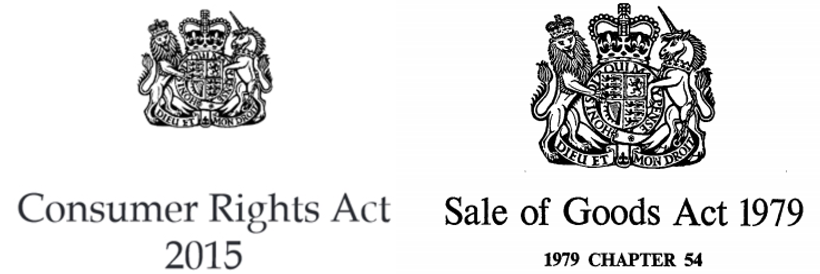UK Retail Law Regulations
All UK businesses previously had to ensure their working practices complied with the Sale of Goods Act 1979 to ensure that goods sold were as described, of satisfactory quality and fit for purpose. This act was replaced by the Consumer Rights Act 2015 introduced on the 1st October 2015 with the aim to modernise the law and make shopping rights much clearer to consumers.
The law covers the following areas:
- Consumers' rights when they have received faulty goods
- How services paid for must match what has been agreed, what should happen if they do not or are not provided with reasonable care and skill
- Unfair terms in a contract
- What happens when a business is acting in a way which isn't competitive
- Written notice for routine inspections by public enforcers, such as trading standards
- Greater flexibility for public enforcers, such as trading standards, to respond to breaches of consumer law
The introduction of the act provides benefits to all, it not only ensures customers are treated fairly, but also helps to ensure a business does not have to face unfair competition from those who use underhand practices. If a business fails to comply with the regulations, they may be investigated by the local authority's trading standards or other regulatory body, leading to possible prosecution or fines. In addition, it has now been made easier for shoppers to raise complaints themselves through the introduction of a consumer ombudsman which is a free to use service. The government believes this strategy will ensure that more companies will improve their service to the public.
The greatest impact on a pharmacy which fails to comply may not just be a financial penalty from the authority, customers could be lost if they are treated unfairly and they will more than likely share any bad experiences with their friends or family impacting the business further. The customer could also report the pharmacy to the relevant body such as the GPhC.
What do the regulations cover that you need to be aware of?
The regulations have been written with the aim of stopping traders from any unfair commercial practices. In total 31 practices have been clearly banned, specifically those which mislead or misinform a customer and prevent them from making a free and informed decision when making a purchase. For example, a business which falsely claims accreditation by displaying a trust or quality mark without the necessary authorisation, to encourage a customer to use them would be in breach of the regulations. For a pharmacy this could be promoting the business as a Healthy Living Pharmacy and displaying the logo without being formally accredited.
This training module will discuss elements of the regulations which are most applicable to pharmacies, specifically concentrating on pricing and promotion laws and the refund rights of a customer.

